Are you finding yourself in the midst of a partnership conflict that feels overwhelming? Navigating disagreements can be challenging, but addressing them head-on is crucial for maintaining healthy professional relationships. In this article, we'll explore effective strategies for negotiation that can transform conflict into collaboration. So, let's dive in and uncover some practical tips for resolving those tricky partnership disputes!
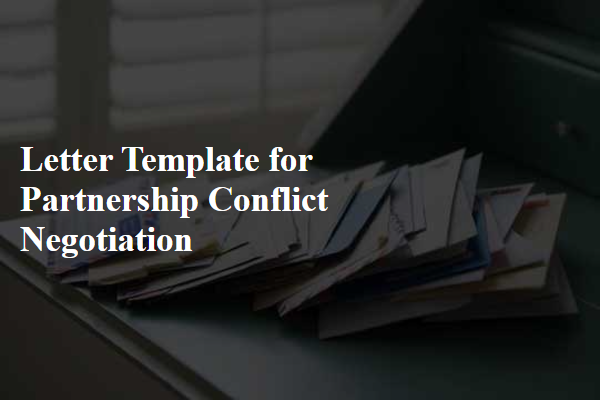
Introduction and Context
Partnership conflicts often arise in business settings, causing tension between stakeholders. Transparent communication is vital in navigating disputes effectively. Understanding the context of the conflict is essential; for example, differing visions for brand direction or resource allocation can lead to misalignment. Additionally, legal structures of partnerships, such as Limited Liability Partnerships (LLPs) or General Partnerships, play a crucial role in defining responsibilities and decision-making processes. Establishing a collaborative approach can foster a constructive dialogue, leading to resolutions that benefit all parties involved.
Statement of Issues
Partnership conflicts often arise from issues such as miscommunication, differing expectations, and financial disputes. Effective negotiation begins with clearly articulating the statement of issues at hand. Common concerns include disagreements over profit-sharing ratios, with expectations of 50% versus 70% for one partner, mismatched responsibilities in daily operations, and variations in commitment levels leading to tension. Personal values discrepancies may also contribute, particularly in industries requiring a shared vision, like renewable energy startups. Additionally, unresolved past incidents, such as project failures or missed deadlines, often exacerbate conflicts. Documenting these issues allows both parties to approach negotiations transparently, aiming for resolution and collaboration moving forward.
Proposed Solutions
Proposed solutions for partnership conflict negotiation usually encompass several strategies aimed at fostering understanding and collaboration between the parties involved. Mediation can serve as a neutral ground, allowing a third-party mediator to facilitate discussions, ensuring each partner's voice is heard. Regular communication channels can be established, such as bi-weekly meetings in a designated conference room, to proactively address concerns before they escalate. Compromise options, like shared decision-making on major investments, can encourage a mutual stake in the partnership's success. Establishing clear roles and responsibilities can minimize misunderstandings, promoting accountability among partners. Lastly, setting measurable goals and timelines can create a sense of shared purpose, motivating partners to work collaboratively towards common objectives.
Benefits of Resolution
Conflict resolution in partnership settings offers numerous advantages, fostering collaboration and harmony. Effective negotiation strategies can lead to improved communication, allowing partners to articulate concerns and perspectives clearly. Building mutual trust and respect enhances relationship dynamics, paving the way for innovative solutions that may otherwise remain concealed. Resolving disputes prevents potential financial losses, safeguarding investments and resources dedicated to the partnership. Additionally, a successful resolution can solidify a commitment to shared goals, reinforcing the partnership's resilience against future challenges. Ultimately, effective conflict resolution not only mitigates current issues but also establishes a framework for sustainable collaboration in the long term.
Invitation for Further Discussion
In the realm of business partnerships, unresolved conflicts can significantly impact operational efficiency and collaborative success. A partnership conflict involving stakeholder interests may stem from discrepancies in profit-sharing arrangements or differing visions for future strategic goals. Engaging in further discussions can facilitate a deeper understanding of each partner's perspectives, allowing for the exploration of potential compromises. Scheduled meetings at neutral locations, like professional mediation centers, can promote a constructive dialogue environment. Utilizing conflict resolution strategies, such as active listening or interest-based negotiation, can lead to mutually beneficial outcomes. Prioritizing open communication fosters trust and strengthens the partnership, vital for overcoming disputes effectively.
Letter Template For Partnership Conflict Negotiation Samples
Letter template of amicable agreement approach for partnership conflict.
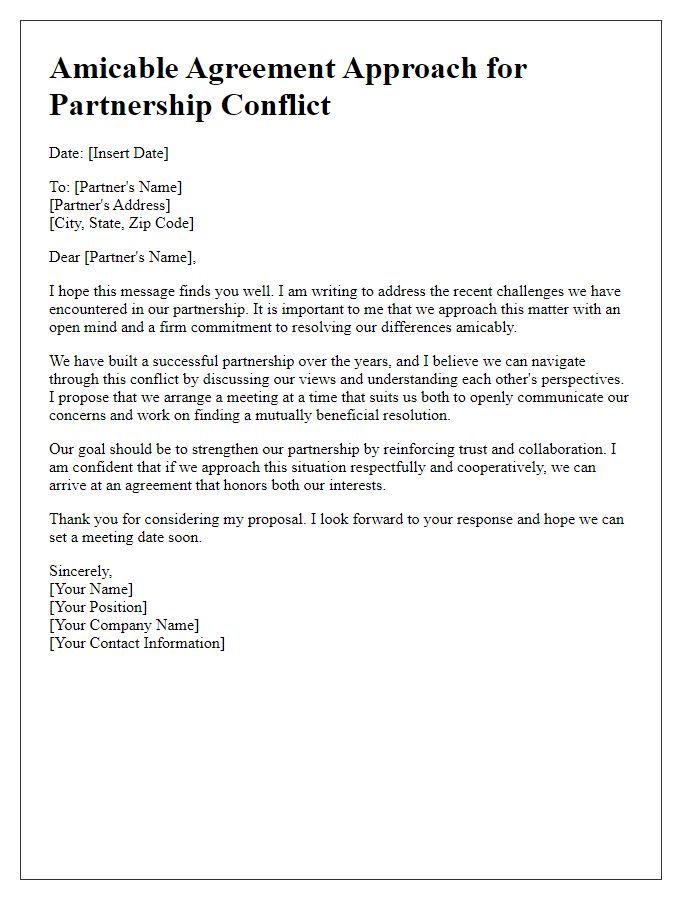
Letter template of structured dialogue for resolving partnership disagreements.
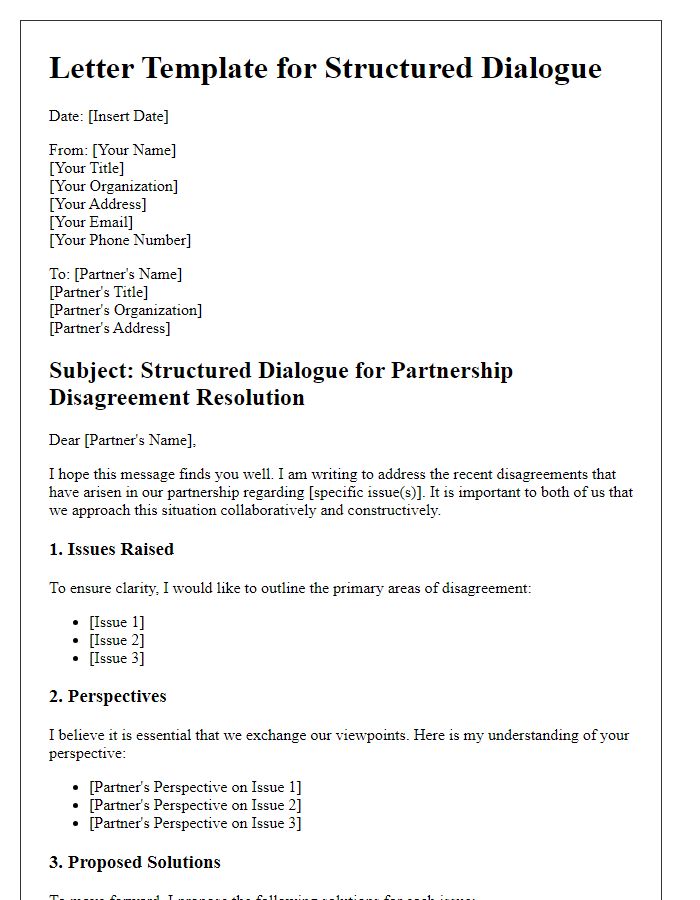
Letter template of formal negotiation initiation for partnership conflicts.
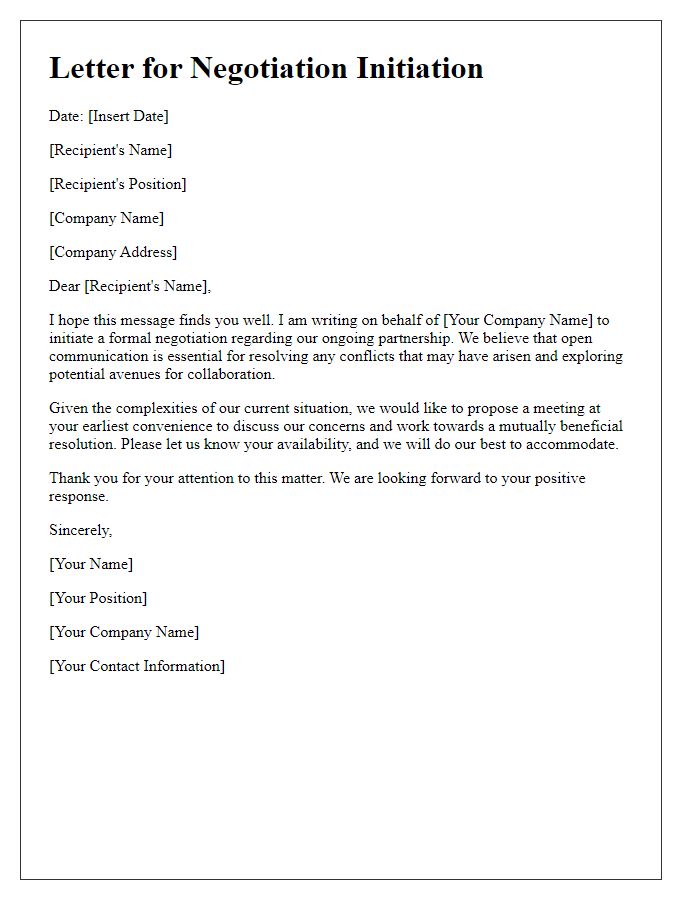

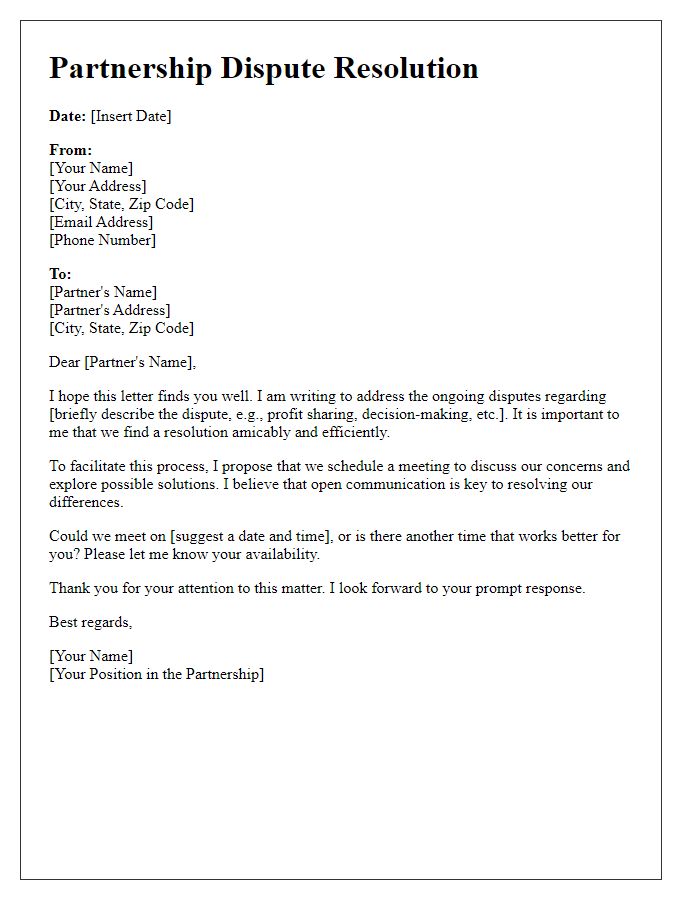
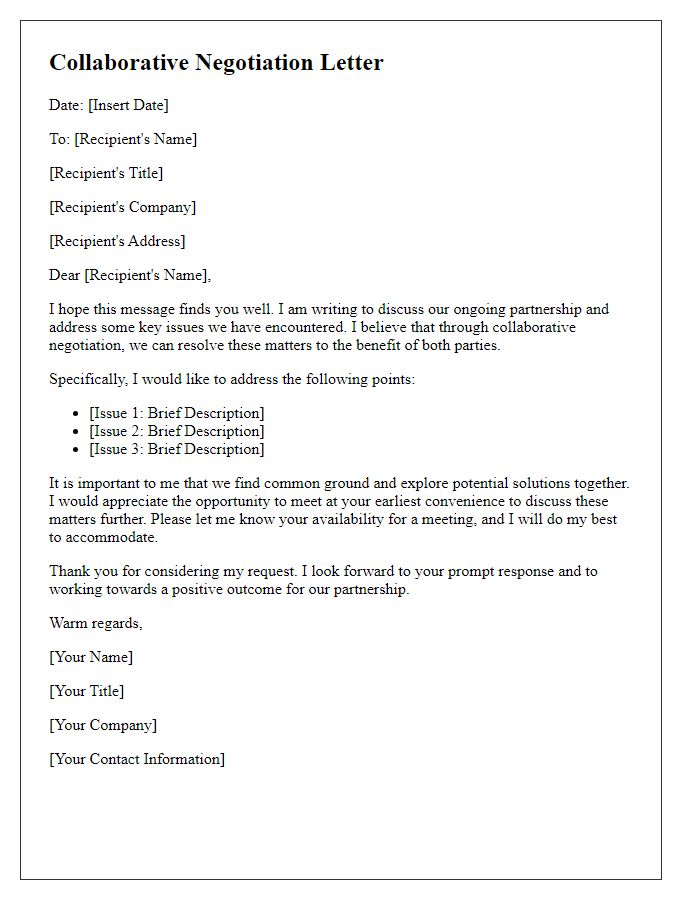
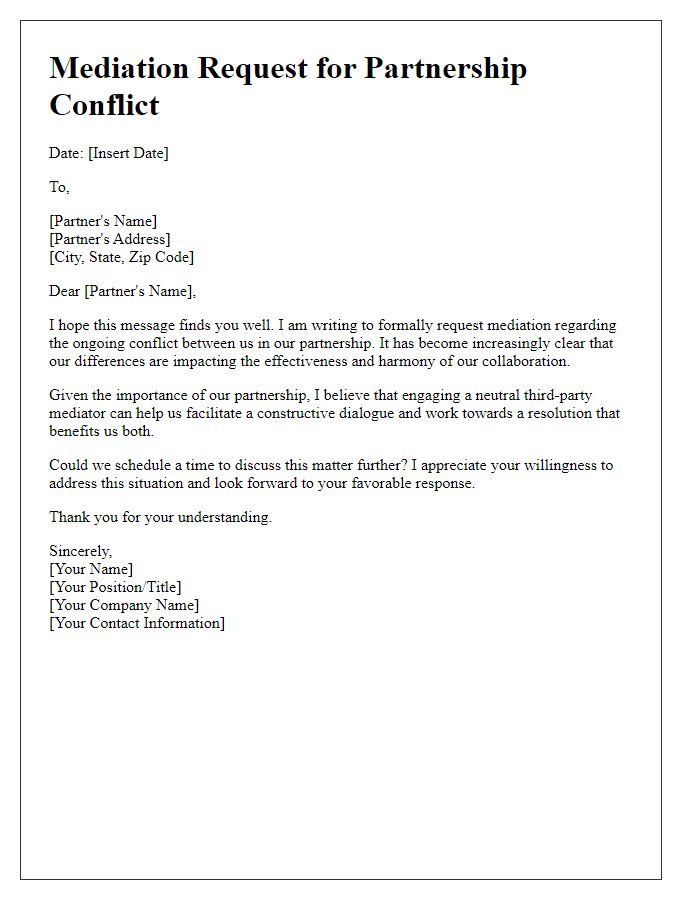
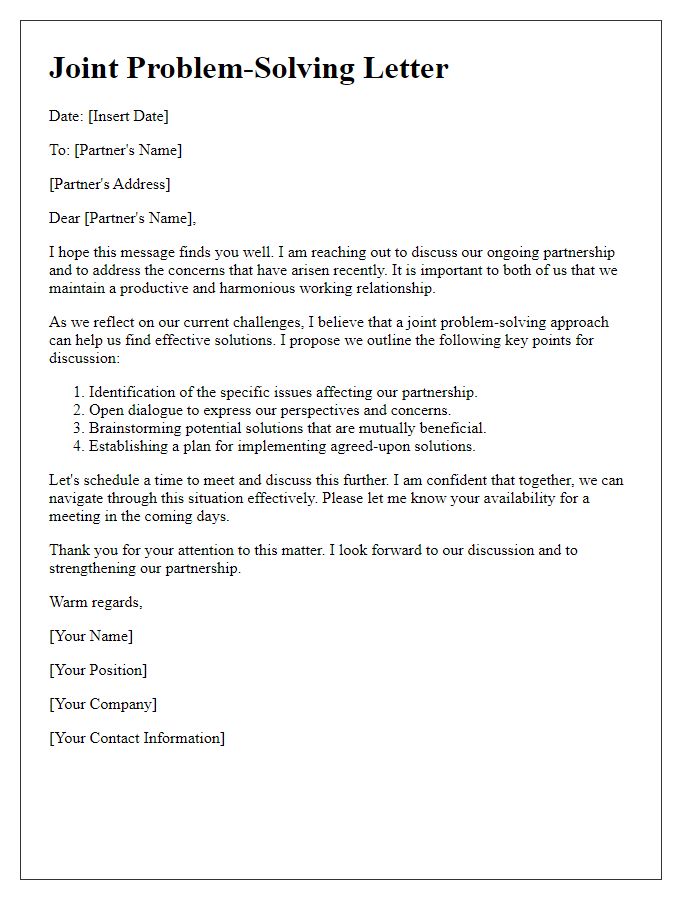
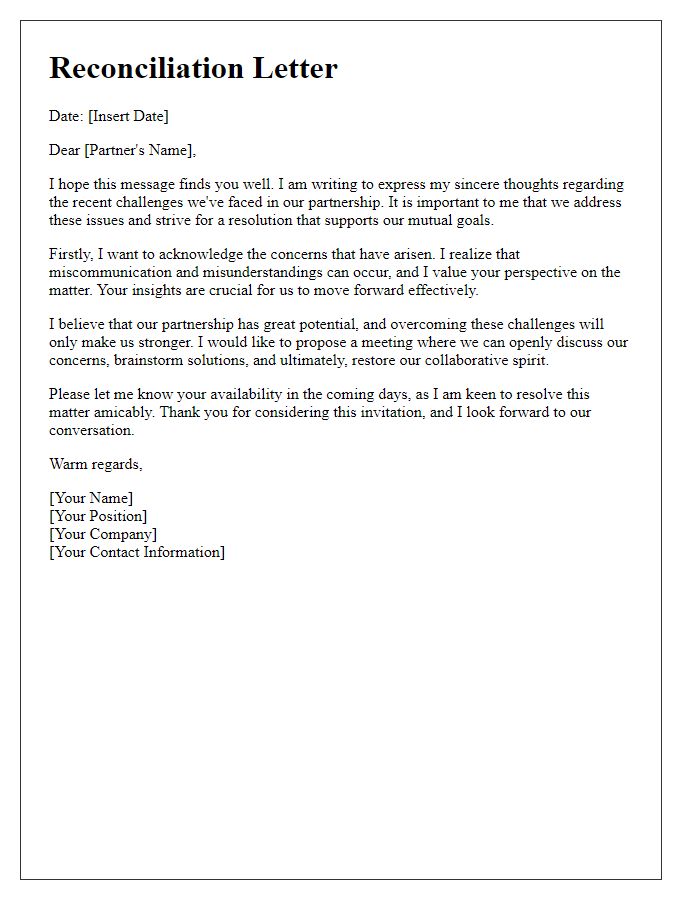
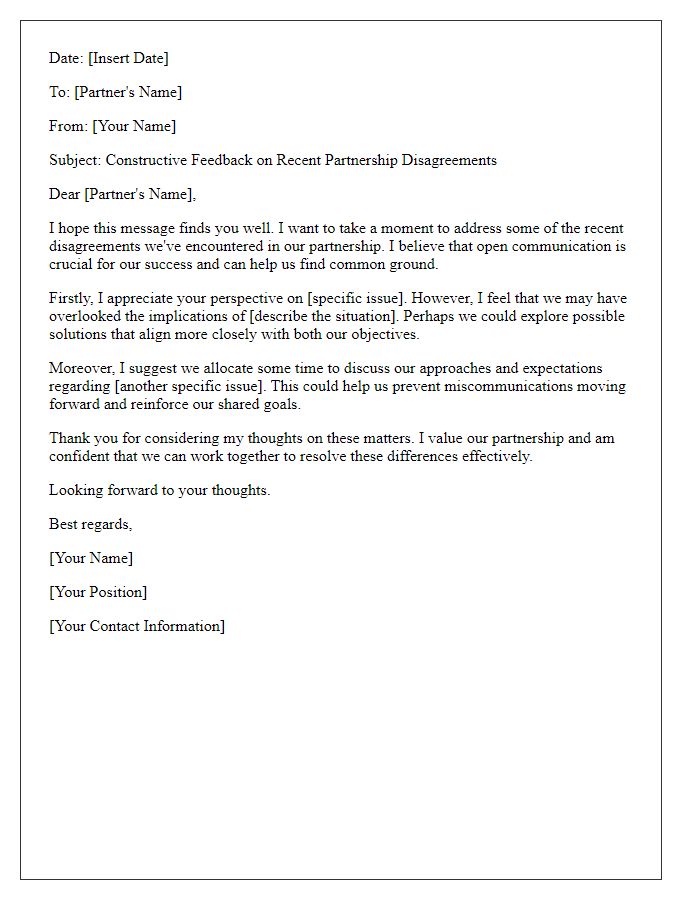
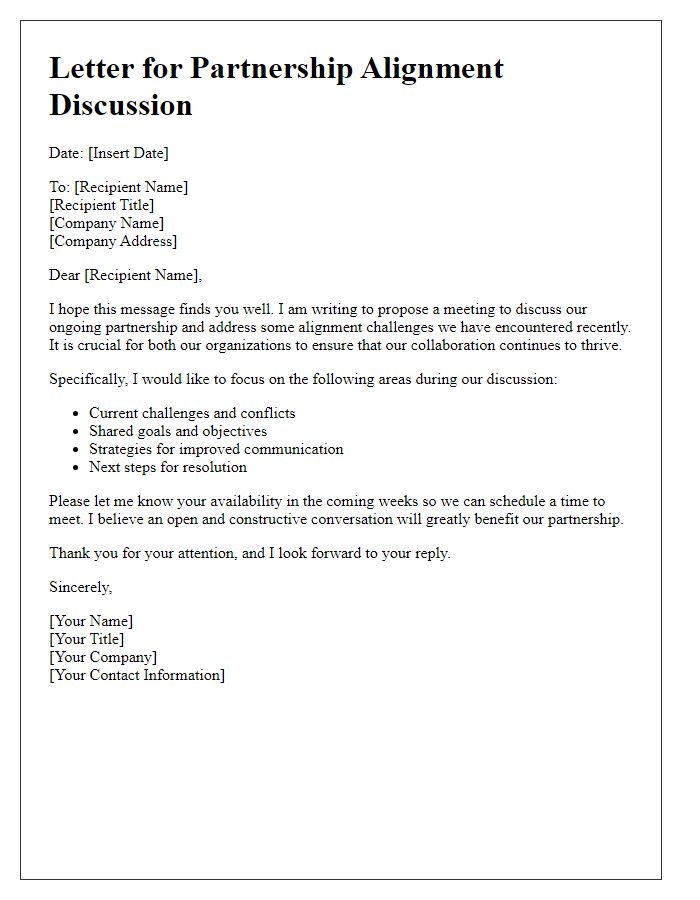


Comments